Welsh heroin deaths prompt 'fix room' calls
- Published
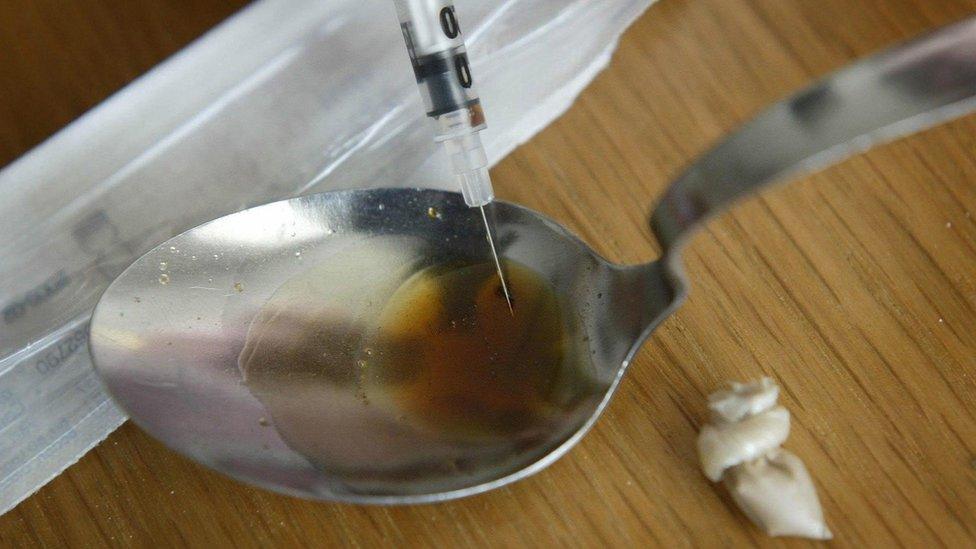
Drugs workers fear a "bad batch of heroin" could have led to the deaths of at least seven drug users in recent weeks in the Gwent Police force area.
The spike in fatal overdoses follows a 50% increase in drug misuse deaths in 2015 after five years of falls.
Officials think an ageing population of heroin users might be behind the rise.
But a suggestion addicts should be given safe "fix rooms" to take their drugs under medical supervision has sparked controversy.
"There's been a very bad batch of heroin out on the street that's literally killed seven people," warned Martin Blakebrough, the chief executive of the charity Kaleidoscope Arch.
It provides a range of services for drug users from a former church close to Newport city centre.
The charity boss told BBC Radio Wales' Eye on Wales programme he has been so concerned by recent events he has posted warnings on walls at their centre for clients.
"I've never known such a bad situation as this. We've lost a lot of people," he said.
It comes as deaths among the drug-using community have increased - reversing a five-year trend.
Deaths rose from 113 in 2014 to 168 for 2015.
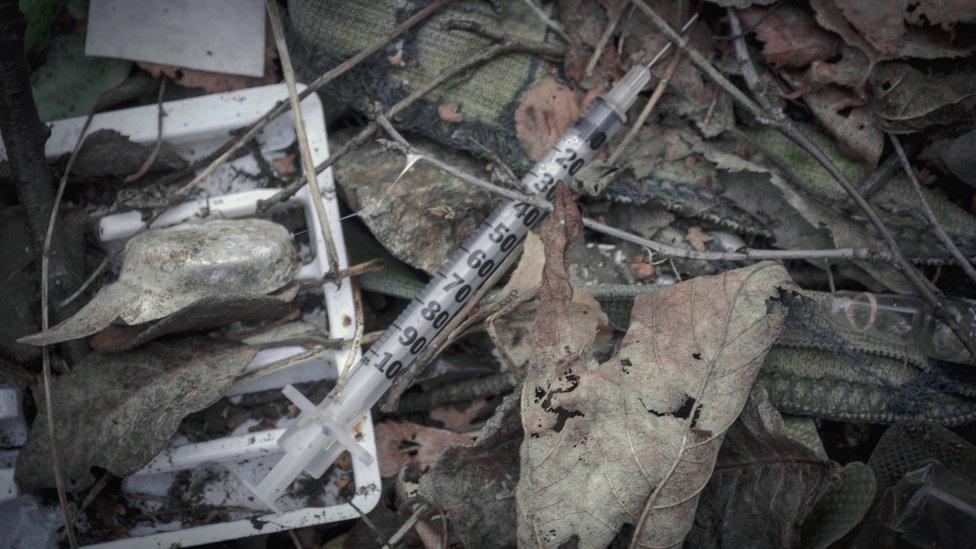
Public Health Wales said it was still analysing the figures but believes one reason for the rise could be heroin users appear to be getting older.
"We can see a cohort of ageing and older heroin users who are now in their late 30s and 40s - but also a little bit older as well," said Josie Smith, head of substance misuse for the health body.
"So there are probably complex issues there. There's probably poorer health, lower immuno-suppression and lower general health and well-being - so that might be a factor."
With older users becoming ever more vulnerable to overdose, and clearly refusing to kick their addiction, the search is on to find new approaches that could save lives.
A win-win?
It has led the police and crime commissioner for north Wales to suggest openly that "fix rooms" might be part of that answer.
"What we need to have is heroin-assisted treatment - which is prescribed heroin," said Arfon Jones.
"It will reduce crime. It will do away with the litter problem of needles, because you'll provide them with needles in the fix room, they will inject there.
"It's obviously more healthy for those addicted to the drugs. I think it's a win-win."
The commissioner recently came under fire after arguing that cannabis should be legalised for medical use.
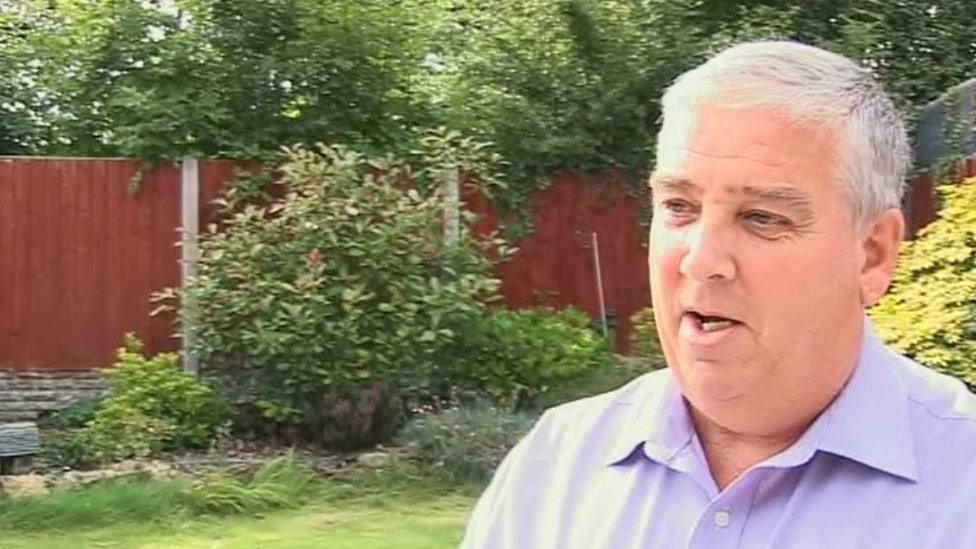
The north Wales police and crime commissioner has backed "fix rooms"
Former heroin user Lisa now works in Wrexham helping others to beat their addiction. She is not sure medically supervised consumption rooms are the way forward.
"I'd like a house. There's a 33-bedder down in Chester where they're allowed to use in their rooms. I went down there, it was tidy, there was a community.
"If there was a room down the road I could use in, would I get up and walk down to that room? Maybe not."
Across the globe there are about 100 fix rooms. Last month, authorities in Glasgow agreed in principle to go ahead with the UK's first such facility.
Expensive treatment
Here in Wales a panel of experts has been asked by the Welsh Government to research their effectiveness.
But Mr Blakebrough said the case still needs to be made for fix rooms.
"The big issue for health boards and government is, is it worth the extra resource? Because it's very expensive to treat people in this way.
"The health difficulties - the criminal justice behaviours - it may work out as being financially viable."
You can hear the full story on BBC Radio Wales Eye on Wales at 12:30 GMT on Sunday, 27 November, or listen again on the BBC iPlayer.
- Published24 November 2016

- Published24 October 2016

- Published15 November 2016
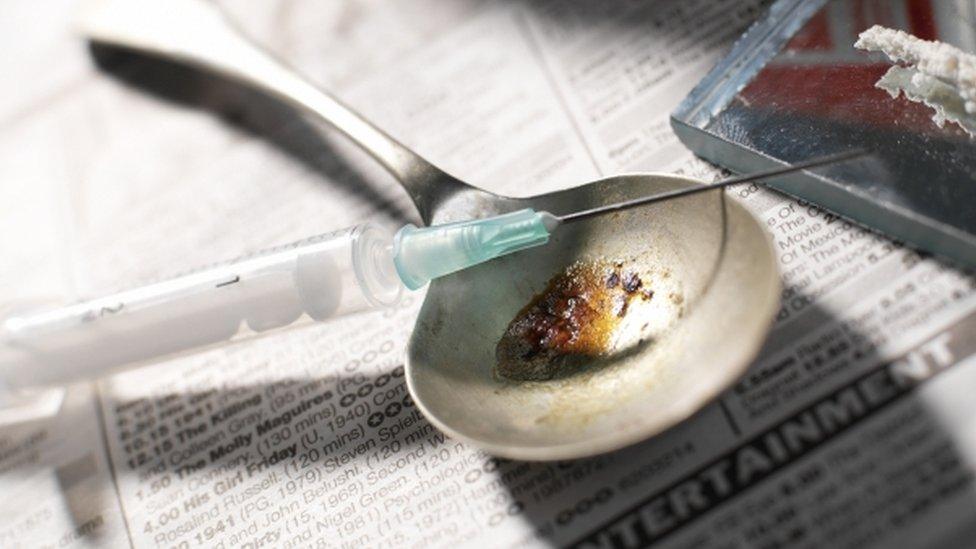
- Published7 October 2016
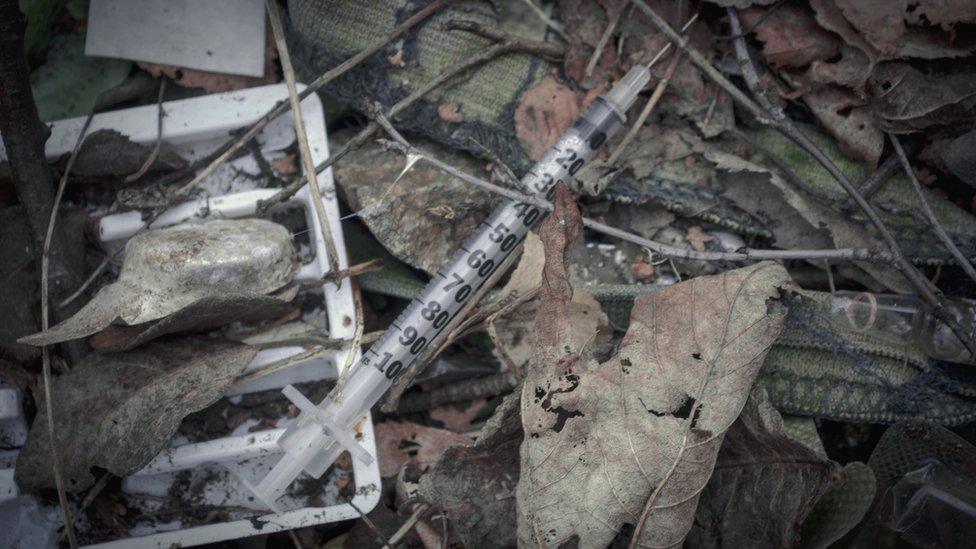
- Published31 August 2016
